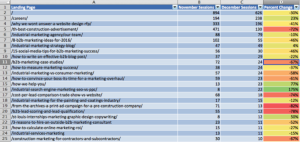When William Goff was looking for a new role earlier this year, there was one offer that stood out among the rest: a position with social learning platform Tigerhall.
Goff, who had just welcomed his first baby, was able to take paid parental leave before he had even started his new job as head of customer success, thanks to Tigerhall’s new benefits policy, which began in 2022. Tigerhall updated its packages to offer 12 weeks of fully paid maternity leave and four weeks of fully paid paternity leave to all employees, forgoing any requirement for the worker to have been employed for a certain amount of time before receiving benefits.
For Goff, who had assumed as a new hire that he wouldn’t be eligible for paternity leave, it was the deciding factor that made him accept the role with Tigerhall over several other job offers he had received.
“The policy definitely played a part in my decision-making process,” Goff says. “Not only because of the time off—although it was appreciated. It was what the policy showed me about the CEO Nellie [Wartoft]’s leadership style and the company she was running.”
Tigerhall is part of a growing number of companies scrapping minimum tenure requirements and making key benefits like paid parental leave available from day one. In a review of 224 venture-backed tech companies’ parental, medical, and caregiver leave policies in 2023, leave management platform Cocoon found that 57% of them don’t have a minimum tenure requirement for employees to access benefits like paid parental leave, medical leave, and caregiver leave.
Parentaly, which runs return-to-work support programs for new parents, has called for more companies to ditch minimum tenure requirements around benefits like paid parental leave, compiling this database of 281 companies and how they compare. Big names like Google, Pfizer, EY, Amazon, and Klarna make up around 136 of those on the list who offer paid parental leave from day one. Other companies offering this include Verizon, customer engagement platform Customer.io, CEO strategy company Day One, window and doors company Marvin, expenses platform Compt, and productivity platform Cake.
Not all companies have made the switch, however. According to Parentaly’s database, some brands, like Wells Fargo and CVS Health, require employees to spend at least 12 months at the company before being allowed to take paid parental leave.
Paid parental leave overall has become a differentiator for employee attraction and retention. As the Society for Human Resource Management found in its 2023 Employee Benefits Survey, paid parental leave is now offered by 39% of U.S. employers, a 6-point jump this year. Some 81% of employees it surveyed in 2023 also said paid leave is very or extremely important, compared with 65% in 2019. “The need for heightened family support during the pandemic seems to have evolved into long-term parental benefits,” the SHRM noted in its report.
However, not offering benefits like paid parental leave from day one remains the norm, as management consultant Christine Spadafor acknowledges. “It’s common for companies to have tenure requirements—by contract, internal policy, or law—before an employee is qualified to receive certain benefits,” she says, adding, “Employers can require up to a maximum of 90 days of tenure before a new employee is eligible to participate in a company-sponsored health plan. Companies want to see if the recruit is ‘a good fit’ during the usual probationary period.
“It’s also common,” Spadafor continues, “to require 6 to 12 months’ tenure before a new employee can participate in a tax-deferred retirement 401(k) plan. And typically, there is a tenure requirement when a company is paying new employee relocation costs. If the employee leaves sooner than the stipulated tenure, the employee usually is required to reimburse the employer for costs.”
Employees are feeling a new sense of empowerment as companies become more accountable for taking action toward their stated diversity, equality, and inclusion agendas. “I would not be surprised if some companies with tenure requirements revise them at some point if there is a groundswell of employee demand for change,” Spadafor says. “Watch this space.”
Verizon, which has offered day one benefits for the past 10 years, hopes more companies will follow suit.
“Our comprehensive approach to total rewards is a critical differentiator for Verizon as a top employer and, frankly, a point of pride,” says Kevin Cammarata, the company’s VP of benefits. “We know that offering parental leave to new parents, both moms and dads, is key to driving further equity and gender parity. We can’t ask women to choose between their careers and caring for themselves and loved ones.”
For Tigerhall’s CEO and founder, Nellie Wartoft, it’s a rational value and trust exchange: “When I hire someone, I trust them from day one, and they have 100% of my support—at work and outside of work. They don’t have to ‘prove’ anything to me first and get benefits later. I trust them immediately, they get benefits immediately, and they also deliver results immediately.”
Wartoft adds that she would like to see as much investment in “men in fatherhood” initiatives as “women in leadership” ones. “Women don’t need more leadership training—they are fantastic leaders. They just need [partners] who are able to have the time to raise their children and contribute equally at home,” she says. “Nothing helps women in the workplace more than having fathers who pick up their share of raising the children. This is also what fathers want.”
Wartoft believes that companies can make concrete steps to improve this situation, noting, “Employers have a lot of power in that equation—both from a culture point of view and a policy point of view. And policy is the easiest place to start.”
(5)









